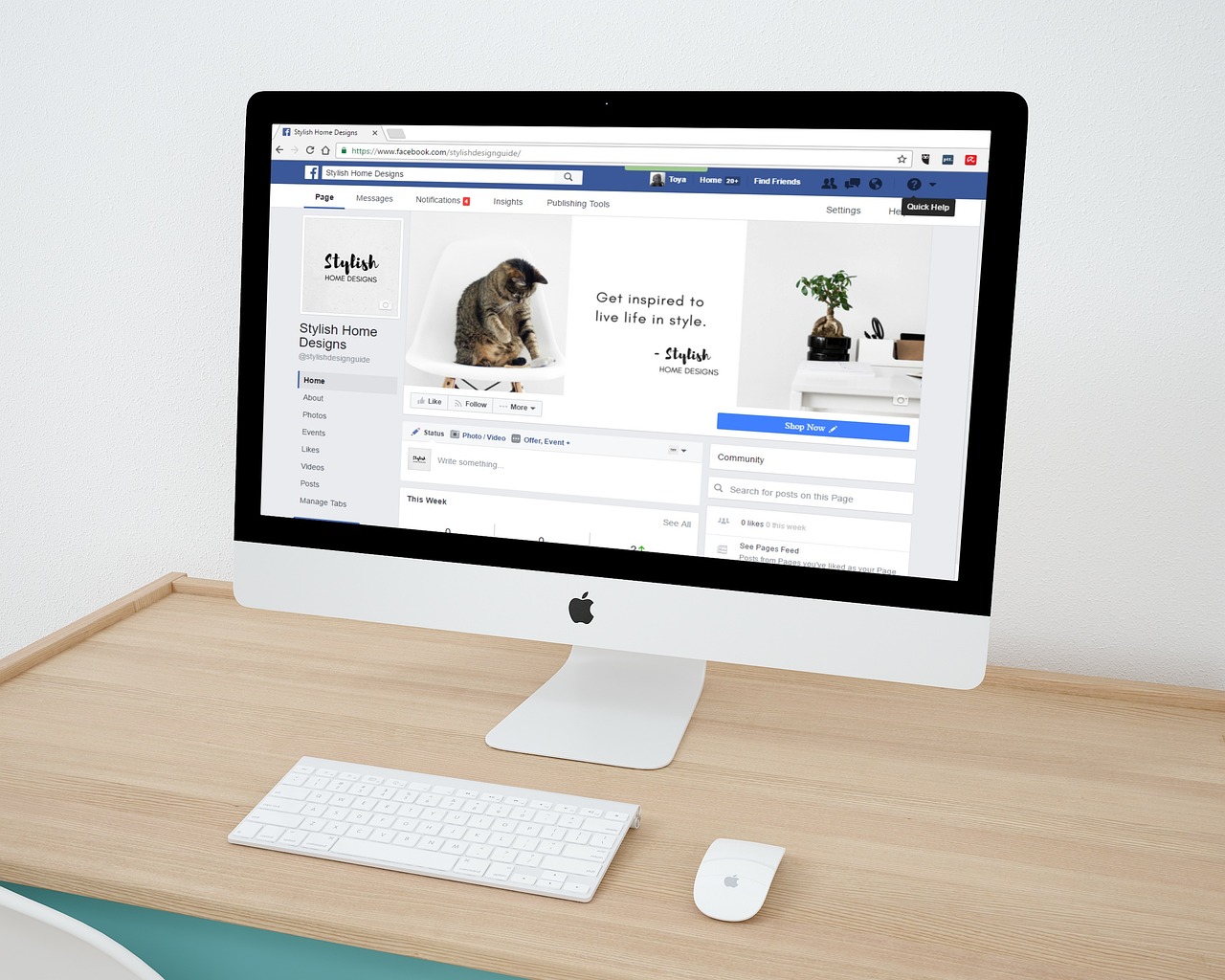Why Can't I Post Anonymously on Facebook?

In the age of social media, privacy concerns and the desire for anonymity have become major topics of discussion. Among the most popular platforms, Facebook holds a central position, with over 2.9 billion monthly active users globally. It provides a vast space for people to share their thoughts, connect with others, and engage in social, political, and professional discussions. However, many users have wondered, "Why can't I post anonymously on Facebook?" This question touches on issues of privacy, security, and the platform’s design philosophy, and it deserves a deeper evaluation.
In this blog post, we will explore the reasons behind Facebook's approach to anonymity, the consequences of posting anonymously, and the possible alternatives for those who value privacy online. We will also examine the ethical considerations of anonymity on social media platforms and discuss how other platforms handle this issue differently.
Why Can't I Post Anonymously on Facebook?
The Evolution of Facebook's Privacy Policies
Facebook, since its inception in 2004, has undergone several changes in its privacy policies, user controls, and features. Initially designed as a social networking platform for college students, Facebook expanded to include people of all ages, backgrounds, and interests. As it grew, so did the concerns over user privacy, especially as data breaches and misuse of personal information came to light.
The platform’s early iterations allowed users to post in relative privacy, though their posts were typically visible to friends, family, and groups they were part of. Over the years, Facebook has moved toward greater transparency and control over personal information, while also focusing on creating an environment where people can use their real identities. In fact, Facebook has always emphasized the use of real names as part of its community guidelines.
Facebook's insistence on using real names can be traced back to several factors:
Accountability and Transparency: Real-name policies were introduced to foster a sense of responsibility among users. The idea is that users are less likely to engage in harmful or malicious behavior if they are accountable for their actions with a traceable identity.
Reducing Fake Accounts and Bots: Real-name policies help Facebook combat fake accounts, bots, and misinformation. While this has had mixed success, it remains a core tenet of the platform’s approach.
Branding and Commercialization: Facebook has a business model centered around user data. The more information Facebook has about its users, the more targeted and effective its advertising platform becomes. Real names allow the company to collect better data and provide more personalized ads.
Community Building: Facebook’s real-name policy aims to foster a sense of community and connection. By encouraging users to interact under their authentic identities, the platform hopes to create more meaningful social connections.
However, as privacy concerns mount, users have increasingly sought ways to maintain anonymity online, particularly on platforms like Facebook. This has led to questions about the possibility of posting anonymously, and why Facebook does not allow for it.

Why Can't You Post Anonymously on Facebook?
Facebook’s refusal to support anonymous posts can be attributed to several strategic, ethical, and security-related reasons. Let’s explore each of these in detail.
1. Commitment to Real-Name Policy
As previously mentioned, Facebook's core philosophy revolves around users presenting their real identities. This commitment to a real-name policy is deeply ingrained in the platform’s design and structure. While users can maintain privacy over certain personal details (like their birthday or location), Facebook requires users to provide their real names when creating profiles.
Allowing anonymous posts would undermine this approach. If users were permitted to post without revealing their true identity, Facebook would risk an influx of disinformation, harassment, and other harmful behaviors. This could degrade the overall quality of interactions on the platform and discourage meaningful, accountable discourse.
2. Security and Safety Concerns
A major reason why Facebook does not allow anonymous posting is its concern for user safety. When individuals can post anonymously, it becomes difficult to hold them accountable for their actions. This opens the door for potential abuse, including:
Cyberbullying and harassment: Anonymity can provide a shield for users who wish to engage in harmful behaviors without fear of consequences.
Trolling and hate speech: Anonymous accounts may encourage individuals to post inflammatory content without fear of being identified.
Misinformation and conspiracy theories: Anonymity can make it easier for fake accounts or bots to spread misinformation without being traced back to a source.
For Facebook, maintaining accountability and ensuring the safety of its users are paramount. The company has implemented several features to promote transparency, such as real-name policies, identity verification, and reporting systems. The absence of anonymous posting aligns with these safety protocols.
3. Business Model and Data Collection
Facebook’s business model relies heavily on data collection. The platform uses personal data to create targeted advertisements, which in turn generate revenue for Facebook. The more data Facebook collects about users—such as their interests, behavior, and interactions—the more effective its ad system becomes. This is why Facebook insists on real names and the use of personal information.
Allowing users to post anonymously would create significant challenges for this data-driven business model. Without the ability to track users’ identities, Facebook would lose its ability to monetize user data effectively. The platform could also lose the ability to provide personalized ads, which are a major revenue stream.
4. Community Engagement and Social Responsibility
Facebook strives to create a sense of community where users engage in real, meaningful conversations. Anonymity, while appealing to some, often leads to negative consequences in online communities. When users are unable to be held accountable for their posts, it can lead to toxic behavior, false information, and a general degradation of trust.
By requiring real identities, Facebook promotes responsible interactions. Users are more likely to engage thoughtfully when they know they are identifiable. This aligns with Facebook's efforts to build a socially responsible platform, even though it comes at the cost of limiting anonymity.
The Ethics of Anonymity in Social Media
The desire for anonymity online is not inherently negative. In fact, there are several legitimate reasons why someone might want to remain anonymous:
Protecting personal privacy: Individuals may wish to avoid revealing their identity for personal or security reasons.
Expressing controversial views: Some users may want to share opinions or engage in discussions that could have negative repercussions for their personal lives.
Whistleblowing and activism: Anonymity can provide a safe space for individuals to expose corruption or engage in political activism without facing retaliation.
However, while these reasons are valid, they are also complicated by the context of large social media platforms like Facebook. When anonymity is abused, it can lead to the negative outcomes previously mentioned. The challenge is balancing users' desire for privacy and free speech with the platform's responsibility to create a safe and accountable environment.
Alternatives to Anonymous Posting on Facebook
While Facebook itself does not support anonymous posts, there are some alternatives for users who wish to maintain a level of privacy:
Private Groups: Facebook allows users to create private groups, where members can post and interact without their posts being visible to the public. These groups often provide a level of anonymity within a trusted community.
Pseudonymous Profiles: Some users may create profiles under a pseudonym, although this goes against Facebook’s real-name policy. Users caught violating this policy risk having their accounts suspended or banned.
Facebook Messenger: For more private conversations, Facebook Messenger allows for direct, personal communication, without the need for public posts. Users can engage in one-on-one discussions with a greater level of privacy.
Third-Party Privacy Tools: While Facebook may not offer anonymity, there are tools like VPNs, secure browsers, and privacy-focused services that can help obscure user identity when browsing the platform. However, these methods come with their own risks and limitations.
Conclusion
In the end, Facebook's policy of not allowing anonymous posts stems from a combination of business considerations, safety concerns, and the platform’s commitment to fostering accountability and meaningful community engagement. While there are valid reasons for seeking anonymity online, Facebook’s design choices reflect the complexities of managing a global social platform.
For those who value privacy, Facebook provides a range of settings and features that allow for controlled sharing and limited visibility. However, the trade-off for anonymity is often a sense of safety and responsibility. As social media platforms continue to evolve, it will be interesting to see how Facebook and other platforms adapt to the growing demand for privacy and the desire for anonymity in the digital age.
Ultimately, users should carefully consider the implications of anonymity on any platform and weigh the potential benefits against the ethical and practical challenges that come with it. The future of social media privacy will likely see continued debates and adjustments, but for now, Facebook’s stance on anonymity is clear: users must engage under their real identities.


Start Growing your Instagram followers
Faster with PopularUp
Over 500+ 5 Star Reviews. Grow Your Account Today With Our Organic Methods


